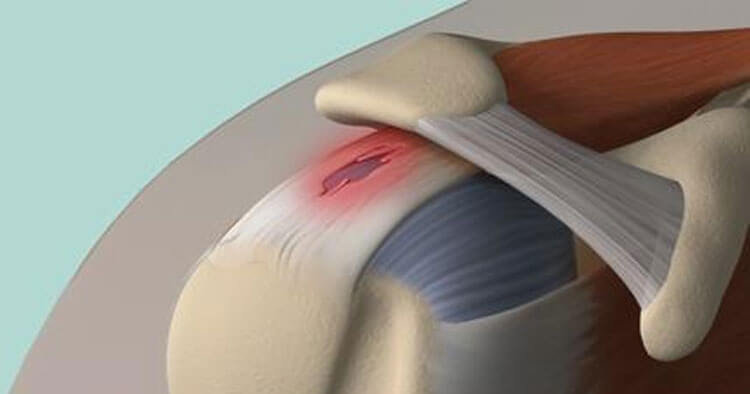Muscle Pain and Tendinopathy
Spotlight On The Supraspinatus Muscle
Supraspinatus Muscle Injury
Supraspinatus is one of a group of shoulder muscles known as the rotator cuff. Tears to the tendon component of the supraspinatus muscle are not uncommon and physiotherapist regularly help people over come rotator cuff and supraspinatus complaints. Frequently tears to supraspinatus do not occur in isolation, often a tear to the supraspinatus is accompanied by one or more other tears to the other rotator cuff muscles, or the biceps long head tendon.
There are two common types of injury the supraspinatus tends to suffer, that being acute tears and degenerative tears:
Acute Tears: Are tears that typically occur in what is a relatively healthy shoulder and are the result of some type of trauma. Trauma causing an acute tear include falls such as a fall on to and outstretched arm or elbow, or coming off a push bike. Acute tears can also occur in both relatively healthy and degenerative tissue as a result of lifting something too heavy. Over the years I have seen a number of such tears blamed on patients helping out when moving house and lifting heavy furniture or appliances, for individuals not accustomed to this type of load helping carry a fridge down a couple of flights of stairs can be substantial strain on the supraspinatus.
Degenerative Tears: The cause of such tears are generally multifactorial in nature. Rather than being the result of a one off trauma, degenerative tears can have many underlying reasons for developing. Degenerative tears are generally in the tendon and may present as a partial, or full thickness tear. Typically degenerative tears are age related, with the incidence increasing with increasing age. In my experience degenerative supraspinatus tears are a common cause of pain and/or reduced function in individuals north of 40 yrs old.
Degenerative tears are also more common in the dominant arm. Combining these two factors of “increasing age” and “handedness” it paints a picture that overload to the tendon over a busy active life plays a role in these degenerative injuries. Repetitive microtrauma over time may create symptoms causing pain, weakness and reduced function with the affected shoulder and arm.
If you exclude a history of trauma to the shoulder then the common risk factors for a degenerative supraspinatus muscle tear include:
- Increasing Age: Being > 40
- The dominant arm
- Being male
- Smoking: Tendon injury with degenerative tears usually occurs in the more avascular zone of the tendon. Hence a lack of blood supply can play a role in the development of these degenerative tendon tears and seeing as smoking can negatively impact such circulation it makes sense that smoking can be a risk factor for tendon injury. This is the case in tendons as a whole not exclusively the supraspinatus.
- Repetitive Stress and lifting: With specific reference to overhead activities. The tendon of the supraspinatus muscle is at risk of impinging under the acromion as it passes between the acromion and the humeral head. Activities repetitively performed above the head during work, or leisure can risk irritation to this portion of the supraspinatus tendon in the subacromial space. Sports such as tennis, cricket and weight lifting, as well as occupations like painters and electricians who regularly work with their hands at or above shoulder height can have a particularly high incidence of degenerative supraspinatus tears.
Disclaimer: Sydney Physio Clinic does not endorse any treatments, procedures, products mentioned. This information is provided as an educational service and is not intended to serve as medical advice. Anyone seeking specific orthopaedic advice or assistance on Spotlight On The Supraspinatus Muscle should consult his or her general practitioner, sports medicine specialist, physiotherapist or otherwise appropriately skilled practitioner.


